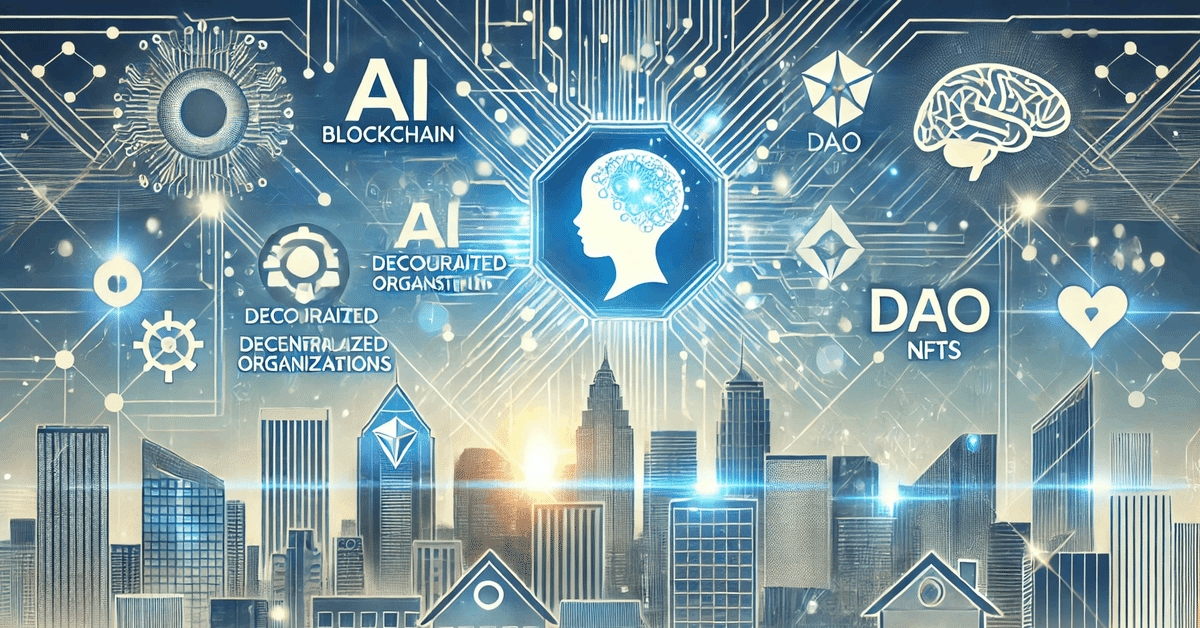
「技術革新時代における大企業の存在意義と日本のビジネスへの影響」 "The Role of Large Corporations in the Age of Technological Innovation and Its Impact on Japanese Businesses"
現代における大企業の存在意義とその変化
現代は、急速な技術革新によってビジネス環境が劇的に変化しています。AI(人工知能)、ブロックチェーン、DAO(分散型自律組織)、NFT(非代替性トークン)といった新技術は、伝統的な大企業のビジネスモデルを根底から揺るがし、その存在意義や役割を再考させる状況を生み出しています。
ブロックチェーンは、特に透明性の向上と信頼性を提供し、中央集権的な管理の必要性を減らしています。たとえば、企業間での契約書管理やサプライチェーンの監視において、ブロックチェーンは書類の改ざんを防ぎ、迅速で正確な取引が可能になります。この技術は、特に金融や物流の分野で採用が進んでおり、例えば日本の三菱UFJフィナンシャル・グループは、ブロックチェーン技術を活用したデジタル通貨の開発に取り組んでいます。大企業は、こうした新技術を活用することで、従来の中央集権的なシステムを見直す必要に迫られています。
さらに、NFT(非代替性トークン)は、デジタルアートやエンターテインメント業界に大きな変革をもたらしています。従来の所有権や価値の交換に関する枠組みを再定義し、デジタル資産の売買が可能となっています。例えば、2021年には、日本の大手ゲーム企業スクウェア・エニックスがNFTを活用したゲーム内アイテムの取引システムを導入する動きを見せています。これにより、エンターテインメント分野でも大企業が新たな収益モデルを追求しています。
DAO(分散型自律組織)は、従来のピラミッド型の組織とは異なり、透明性を持った分散型の意思決定を実現します。これは、大企業のトップダウン型管理構造に変革を迫るもので、従業員やステークホルダーが企業の意思決定に直接参加できるという点で、経営の在り方を大きく変えます。このモデルは、グローバルなプロジェクトでの採用が進んでおり、日本でもスタートアップがこの手法を活用し始めています。例えば、日本のLayerXはDAOを活用して、地方自治体の透明性向上プロジェクトを手掛けています。
また、AI(人工知能)は、企業の業務効率を大幅に向上させるとともに、カスタマーサービスの自動化やデータ分析を通じて新しい競争力を生み出しています。日本の企業もこれに積極的に取り組んでおり、例えばソフトバンクグループは、AI技術を活用したロボットやIoTソリューションの提供に注力しています。AIによる迅速なデータ処理や意思決定支援が、特に大企業のグローバル展開において大きな武器となっており、今後さらに重要性が増していくでしょう。
これらの技術の登場により、大企業はこれまでの「安定した雇用」や「大規模プロジェクトの遂行能力」だけではなく、新たなビジネスモデルや価値提供の手法を模索しなければなりません。
日本のビジネスへの洞察
日本の企業や起業家にとって、これらの技術を効果的に活用することが、今後の成長と競争力の向上に不可欠です。たとえば、中小企業が大企業に対抗するために、ブロックチェーンを活用した透明性の高いサプライチェーン管理システムを導入することが考えられます。また、AIを活用して業務効率を改善し、人的リソースを必要とする作業を減らすことで、限られた資源で競争力を持つことができます。
Tommy Yoshida氏は、大企業の正社員になることよりも、個人の専門性やスキルを活かした業務委託契約が増えると考えています。日本の起業家は、外部の専門家やフリーランサーと協力し、プロジェクトベースでの業務を進めることで、迅速な市場対応や新しいビジネスモデルの構築が可能となるでしょう。特に、技術進化が急速に進む分野では、企業内に全てのリソースを抱えるよりも、必要に応じて外部のリソースを活用する方が効率的です。
例えば、AIやデジタル技術に特化した外部のプロフェッショナルと協力し、日本国内のスマートシティプロジェクトや再生可能エネルギー分野での展開を加速させることが期待されます。NECや富士通がスマートシティ開発において、外部の技術パートナーとの連携を進めているように、中小企業も同様のアプローチを取ることが可能です。
English Version:
The Role of Large Corporations and Its Transformation in the Modern Era
In the modern business world, rapid technological advancements such as AI (Artificial Intelligence), blockchain, DAO (Decentralized Autonomous Organizations), and NFTs (Non-Fungible Tokens) are reshaping traditional business models. These innovations are challenging the fundamental principles upon which large corporations have built their value and operations, leading to a reconsideration of their roles.
Blockchain, for instance, enhances transparency and reliability by reducing the need for centralized control. In sectors like finance and logistics, blockchain is being increasingly adopted to prevent document tampering and enable faster, more accurate transactions. One notable example is Mitsubishi UFJ Financial Group, which is working on developing a blockchain-based digital currency. This illustrates how large corporations are being forced to reconsider their centralized systems by integrating new technologies.
Furthermore, NFTs are revolutionizing industries like digital art and entertainment by redefining ownership and value exchange. In 2021, Square Enix, a major Japanese gaming company, introduced an NFT-based system for trading in-game items, demonstrating how large corporations are exploring new revenue models through these emerging technologies.
DAO (Decentralized Autonomous Organizations) represents a shift away from traditional hierarchical structures, offering transparent, decentralized decision-making processes. This challenges the top-down management style of large corporations, enabling employees and stakeholders to participate directly in corporate decisions. The DAO model is gaining traction in global projects, with Japanese startups, such as LayerX, leveraging DAOs to enhance transparency in local government projects.
Moreover, AI (Artificial Intelligence) is significantly improving operational efficiency, automating customer service, and generating new forms of competitive advantage through data analysis. SoftBank Group in Japan is actively using AI to provide cutting-edge robotics and IoT solutions. With AI's ability to process data and assist in decision-making rapidly, it is becoming a critical tool for large corporations, especially in global expansion efforts.
The advent of these technologies means that large corporations can no longer rely solely on their ability to offer stable employment or execute large-scale projects. They must now explore new business models and methods of delivering value to stay relevant in the rapidly changing marketplace.
Insights for Japanese Businesses
For Japanese companies and entrepreneurs, effectively utilizing these technologies is key to future growth and maintaining a competitive edge. For example, small and medium-sized enterprises (SMEs) can use blockchain to create transparent supply chain management systems, competing against larger corporations. Additionally, adopting AI for improving operational efficiency and reducing human resource dependencies can enable SMEs to thrive with limited resources.
Tommy Yoshida believes that the traditional model of lifetime employment at large corporations will give way to an increasing number of project-based contracts that leverage individual expertise. Japanese entrepreneurs can benefit by collaborating with external professionals and freelancers, enabling them to respond more quickly to market changes and build innovative business models. In rapidly evolving sectors like technology, it is more efficient for companies to rely on external resources rather than internalizing all capabilities.
For instance, Japanese businesses can accelerate smart city development or renewable energy projects by partnering with AI and digital technology professionals. NEC and Fujitsu are leading examples, collaborating with external partners on smart city projects. SMEs can adopt a similar approach, using these technologies to drive innovation and remain competitive in the global market.
#技術革新 #ビジネス戦略 #分散型組織
#TechnologicalInnovation #BusinessStrategy #DecentralizedOrganizations
この記事が気に入ったらサポートをしてみませんか?
